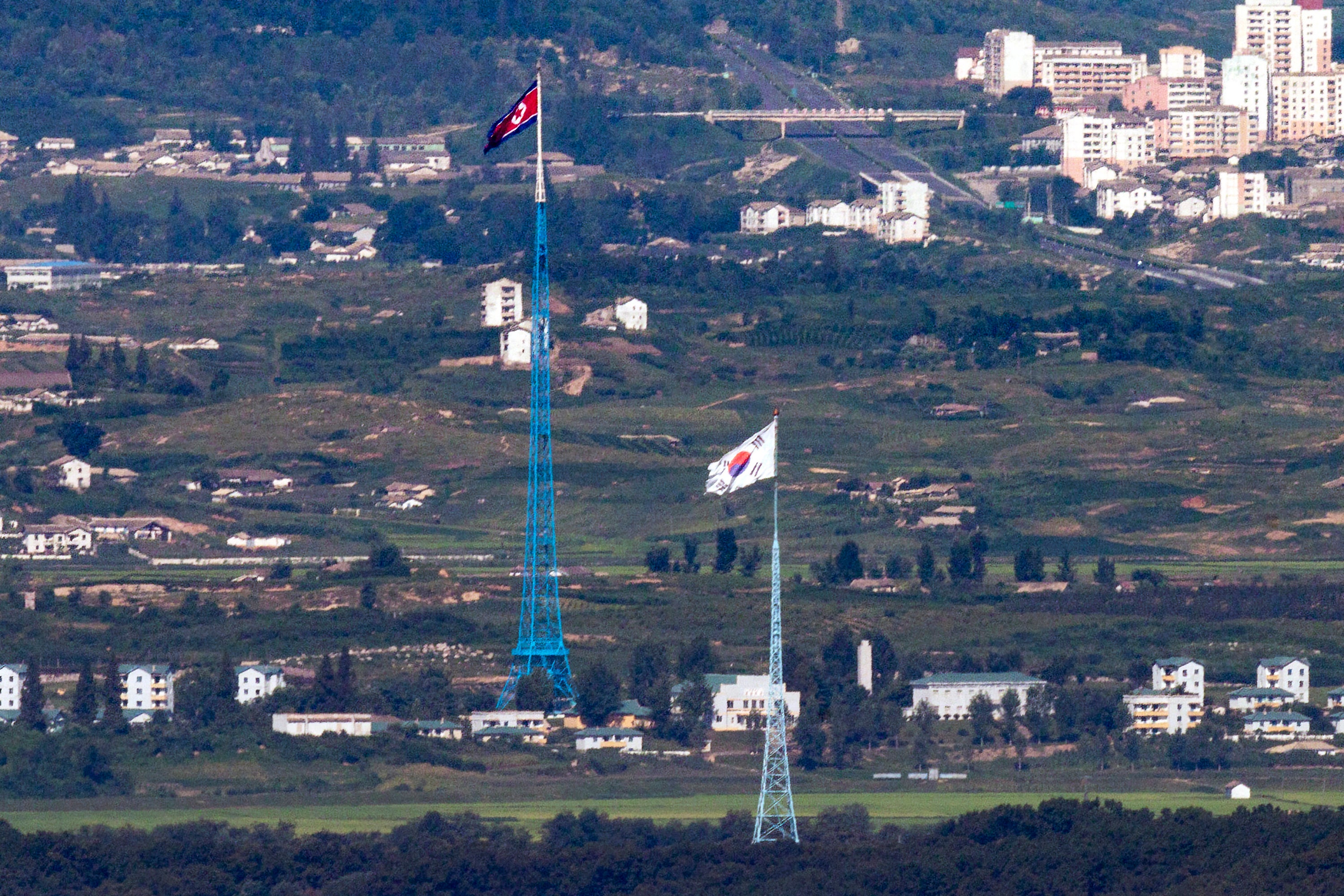South Korea delays its own spy satellite liftoff, days after North's satellite launch
South Korea says it has postponed the planned launch of its first military spy satellite set for this Thursday

South Korea has postponed the planned launch of its first military spy satellite set for this Thursday, officials said, days after rival North Korea claimed to put its own spy satellite into orbit for the first time.
Under a contract with SpaceX, South Korea is to launch five spy satellites by 2025, and its first launch using SpaceX’s Falcon 9 rocket had been scheduled to take place at California’s Vandenberg Air Force Base in the United States.
The South Korean Defense Ministry said in a brief statement Tuesday the launch was delayed due to weather conditions. Ministry officials said the launch was tentatively rescheduled for this Saturday but it wasn’t a fixed date.
South Korea currently has no military reconnaissance satellites of its own and partially resorts to U.S. spy satellites to monitor moves by North Korea.
After two launch failures earlier this year, North Korea said it successfully placed its “Malligyong-1” spy satellite into orbit on Nov. 21. South Korea said it has confirmed that the satellite entered orbit, but said it needs more time to verify whether it is working properly.
North Korea said Tuesday leader Kim Jong Un reviewed imagery taken by the Malligyong-1 satellite of the White House and the Pentagon in Washington and U.S. aircraft carriers at a navy base and a shipyard in Virginia. North Korea earlier said the satellite also transmitted photos of U.S. military facilities in Guam and Hawaii and key sites in South Korea.
North Korea hasn’t yet released those satellite photos. Outside experts remain skeptical about whether the North Korean satellite can send high-resolution imagery and perform proper military reconnaissance.
The North Korean launch invited strong condemnations from South Korea, the U.S., Japan and others. It violated U.N. Security Council resolutions that ban any satellite liftoffs by North Korea because they are considered disguised tests of the country’s long-range missile technology.
Kim has said spy satellites would allow his country to better monitor its rivals and enhance the precision-strike capability of its nuclear-capable missiles.
The satellite launch flamed animosities between the rival Koreas, with both nations taking steps to breach their previous military agreement meant to ease frontline military tensions.
Spy satellites were among the high-tech weapons systems that Kim has publicly vowed to introduce. Since last year, North Korea has conducted about 100 ballistic missile tests in part of efforts to modernize its arsenal of weapons targeting South Korea and the United States.
In response, South Korea and the United States have expanded their military training and enhanced “regular visibility” of U.S. strategic assets such as aircraft carriers, nuclear-capable bombers and a nuclear-armed submarine to the Korean Peninsula.
Bookmark popover
Removed from bookmarks